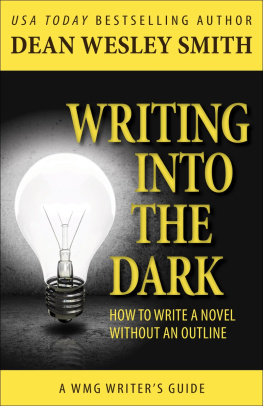Anna Dean - Moment of Silence
Here you can read online Anna Dean - Moment of Silence full text of the book (entire story) in english for free. Download pdf and epub, get meaning, cover and reviews about this ebook. year: 2008, publisher: Allison & Busby, genre: Prose. Description of the work, (preface) as well as reviews are available. Best literature library LitArk.com created for fans of good reading and offers a wide selection of genres:
Romance novel
Science fiction
Adventure
Detective
Science
History
Home and family
Prose
Art
Politics
Computer
Non-fiction
Religion
Business
Children
Humor
Choose a favorite category and find really read worthwhile books. Enjoy immersion in the world of imagination, feel the emotions of the characters or learn something new for yourself, make an fascinating discovery.
Moment of Silence: summary, description and annotation
We offer to read an annotation, description, summary or preface (depends on what the author of the book "Moment of Silence" wrote himself). If you haven't found the necessary information about the book — write in the comments, we will try to find it.
Moment of Silence — read online for free the complete book (whole text) full work
Below is the text of the book, divided by pages. System saving the place of the last page read, allows you to conveniently read the book "Moment of Silence" online for free, without having to search again every time where you left off. Put a bookmark, and you can go to the page where you finished reading at any time.
Font size:
Interval:
Bookmark:

A NNA D EAN
For Peter, with love.
Belsfield Hall,
Monday, 23rd September 1805
My dear Eliza,
I must begin another letter to you, although it is not six hours since I sent my last. I have some news to communicate which I think will surprise you not a little.
Miss Dido Kent hesitated, her pen suspended over the page. All her education and almost thirty years experience of writing letters had not quite prepared her for this situation. As well as she could recall, the rules of etiquette said nothing about the correct way in which to convey the news that she now had to impart. However, her governess had once told her that the very best style of writing was that which gave information simply and clearly without any excess of sensibility.
She dipped her pen into the ink and continued.
There has been a woman found dead here in the shrubbery this evening .
She read what she had written, thought for a little while, then added:
It was the under-gardener who found her.
Her sister would wish to be reassured that it was not a member of the family, or one of their guests, who had made the horrible discovery.
Looking at the words gleaming blackly in the light of her candle, Dido thought for a moment how strange it was that something so extraordinary should be contained within the familiar, flowing pattern of the script, looking no more strange than a report upon the weather or an account of a sermon heard in church. Then she continued, her pen beginning to move more steadily as she found herself drawn away from the simple giving of information to that commentary upon men and women which seemed to come most naturally to her whenever she had a blank page before her.
No one knows who the dead woman can be. Sir Edgar and Lady Montague are quite sure that they know nothing of her. They are both, of course, deeply shocked. He, as you may imagine, is very much exercised over what people will think, and how a dead woman in his shrubbery is likely to reflect upon the honour of the family name. Altogether, I think it is the novelty of the event which distresses him more than anything else; if only his ancestors those innumerable previous Sir Edgars who stare at one from dark portraits in every conceivable corner of this house had suffered the shock before him, then dead women in shrubberies would be a family tradition and hold no horrors for him at all. Meanwhile, her ladyship sits upon her sofa and wrings her hands and declares that one does not know what to think, hoping, I suppose, that someone will tell her what to think and so save her the trouble of forming an opinion of her own.
Her sister-in-law, Mrs Harris, is quite as animated upon the subject as my lady is languid and has been occupied with relating every shocking detail which she has been able to gather or can imagine details which a woman of more sense would not give credit to, and one of more breeding would certainly not retail in the drawing room. Her husband, though one must believe he is a sensible man or at least a clever one, or else how would he have made such a fortune in India? instead of trying to check her, hangs upon her words and laughs over her extravagances as if they were the pinnacle of feminine wit and vivacity a very disgusting display of conjugal affection which I think we might be spared from a husband and wife with more than twenty years married life behind them and two grown daughters into the bargain.
The daughters in question are, I believe, as undecided as her ladyship over what one should think and want to know whether interest, horror or indifference would be most becoming or at least which Colonel Walborough would find most becoming. Although I think it might be a kindness to just mention to them that neither Miss Harriss pursed-lip silence, nor Miss Sophias excessive sorrow over the death of the poor, poor unfortunate woman, are likely to charm a sensible man.
The colonel himself seems to have expressed all that he feels upon the subject with a long, rather dull story which he told us at dinner about a similar incident that occurred when he was stationed in Bahama at least I think it was Bahama. It was somewhere that has very hot weather and odd diseases. The colonel has not quite that power of narration which chains the listeners attention. And then, when the story was done, Mr Tom Lomax must try to enliven our dessert by calling on Mr Harris to better it, since he was sure, from all he had heard from his numerous acquaintance in the place, that India was as full of strange and shocking events as ever Bahama was. That sally did not amuse anyone, least of all Mr Harris, who seemed to be extremely discomposed by it; though I confess I liked it rather better than Mr Toms next attempt at wit, which was to lament that his friend Richard was not at home to see all this carry on, which by G_ _ is as good as play! Which distressed poor Catherine terribly and I thought it quite unpardonable of him to draw attention to Mr Montagues absence in that way. I was glad when Mr William Lomax his father spoke the only bit of sense we had heard all evening, calling him to order and reminding him to show a little respect for the dead. By the by, I am excessively fond of Mr William Lomax; he is so kindly and so well made and he has a very fine profile. He has also the very great recommendation of being a widower. And, all in all, I am rather sorry that I gave up the business of falling in love some years ago.
Well, I have given you a picture of them all now except those who, I make no doubt, you most wish to hear of. And I expect to be thoroughly called to order by you in your next letter for abusing my fellow creatures so dreadfully. Remember that I quite rely upon your strictures, for why else do I allow my pen to run on so cruelly, but that you may prove yourself my superior in candour and liberality as you are in everything else?
And as for our nearest relations, well, they are as you have probably imagined them. Margaret is almost as concerned for the health and welfare of the name of Montague as Sir Edgar can be, for, ever since Catherines engagement to Mr Montague, she has considered the name as pretty much her own. And I daresay Francis feels the same; though I have not seen him. He left on business to town some hours before I arrived here. And dear Catherine? Well, to own the truth, she is too distressed over the business I explained in my last to notice much what happens around her. And yet, if this matter is not settled soon, I fear it will hurt her dreadfully.
You see, there is to be an inquest. It seems it cannot be avoided because of no one here even knowing who the dead woman is. Even the servants and I have spoken to most of them myself cannot guess who she might be. Though I suppose they may be lying.
* * *
She lifted her pen and smiled wryly at the last words, reflecting that she had not, as she wrote, thought to question the truth of the account which the baronet and his wife had given. She wondered whether to scratch the last words out, but decided that there was no need to spoil her neat white page, for Eliza would certainly see nothing amiss in what she had written. It was only her own strange mind which noticed such things. She continued.
So how she came to be in the shrubbery is almost as much of a mystery to us all as how she should be shot. For she was shot.
Another pause, for such details seemed indelicate. But Eliza would, quite naturally, wish to know, so: give the information simply and clearly and, of course, avoid excessive sensibility.
Well, it seems there was a great deal of shooting here today for the men from the house were out above three hours with their guns this morning. As is usual in these places, shooting is very much the order of the day and the gentlemen regard the birds as a kind of enemy army upon which they must wage a continual war. However, they are quite sure that there can have been no accident, for they were at the top of Coopers Spinney and there is the hill and the Greek Temple and the ha-ha too between there and the shrubbery.
Font size:
Interval:
Bookmark:
Similar books «Moment of Silence»
Look at similar books to Moment of Silence. We have selected literature similar in name and meaning in the hope of providing readers with more options to find new, interesting, not yet read works.
Discussion, reviews of the book Moment of Silence and just readers' own opinions. Leave your comments, write what you think about the work, its meaning or the main characters. Specify what exactly you liked and what you didn't like, and why you think so.











